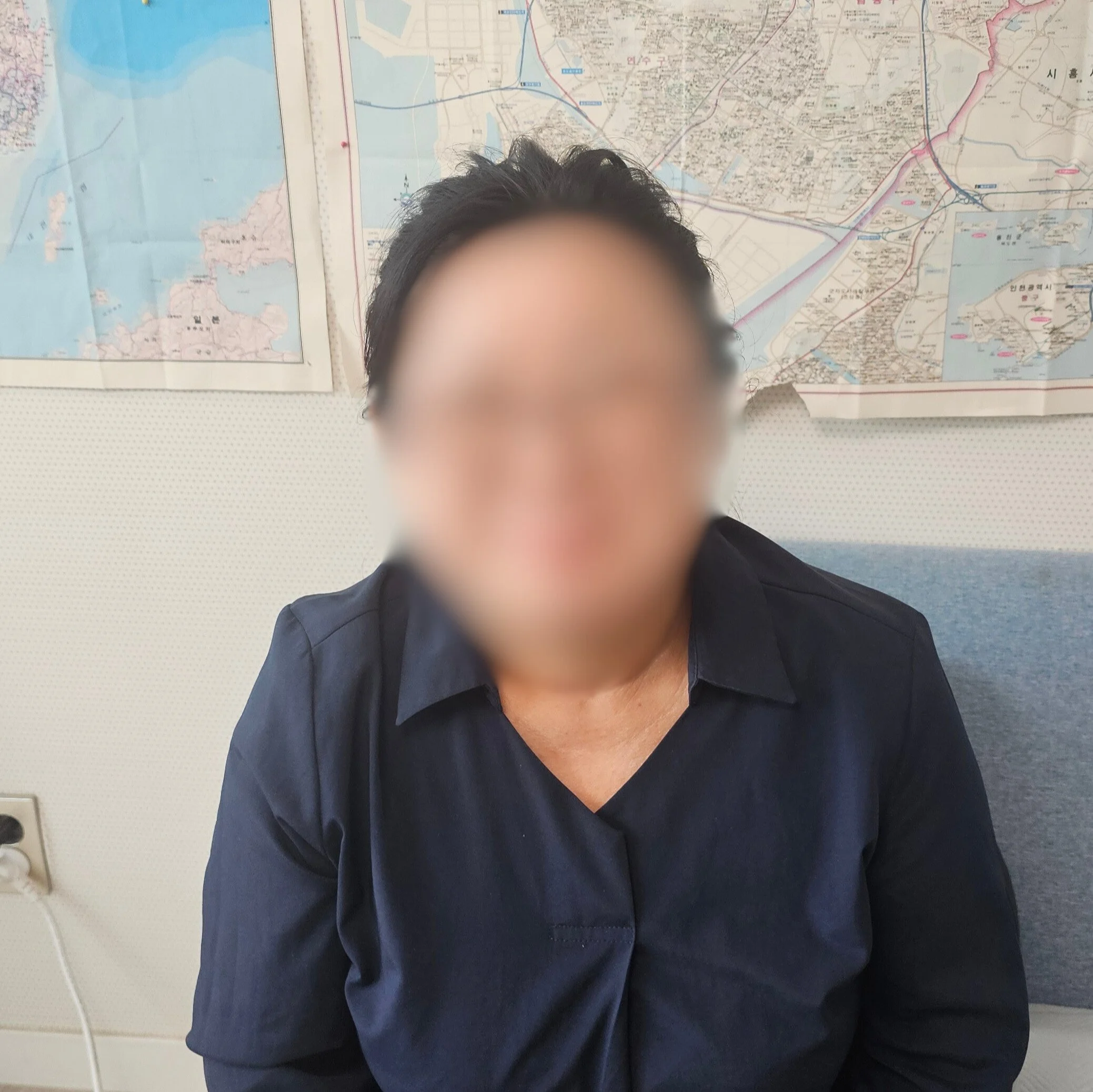A woman we call “Esther” arrived at Elim House just a few weeks ago. Esther is 59 years old. She defected from North Korea 20 years ago, spent about 15 days in China, and then, with the help of a Christian organization, arrived in South Korea in 2004.
After coming to South Korea, she earned a license to be a skin care instructor and worked as a lecturer at an academy. She attended university in North Korea and has never been married. She said that her studies in traditional Korean medicine in North Korea helped her excel at her skin care job, which earned her a lot of money.
Just as she was earning good money and planning to travel and enjoy life, she was in a serious car accident. She was in a coma for six months. While in the hospital, she had a dream where she saw her deceased family members from North Korea peacefully tending to flowers. They called out to her to join them, but someone grabbed her foot, preventing her from going. Esther believes she was saved because it was not her time to die.
loneliness in south korea
Recently, during their time of morning devotions, the women at Elim House read through Proverbs 27 and Esther shared how Proverbs 27:7 spoke to her as she let us into a part of her past.
“A satisfied soul loathes the honeycomb, but to a hungry soul every bitter thing is sweet.”
“After leaving Hanawon, I received housing in Seoul but went three days without eating. I didn't know how to cook rice in a rice cooker, so I looked for a fireplace and a place to make a fire but couldn't find one, so I couldn't cook rice. For three days, I only drank tap water. On the first day, the tap water smelled of disinfectant, but as I continued to starve, by the third day, I didn't even notice the disinfectant smell and just drank the water.
I also received a cell phone but didn't know anyone, so I found the number of the personal protection (police) officer assigned to me and asked for help. The personal protection officer was surprised to hear about my situation, bought various side dishes from the market, prepared them, and even brought extra packages of rice cakes to distribute to my neighbors.
Even though I knocked on neighbors' doors to say hello and share rice cake with them, I was surprised by their cold and unwelcoming responses. In North Korea, when someone moves into a new home, people come first to share things, ask where they are from, and warmly welcome them, but in my experience, South Koreans were the opposite, and keep to themselves.”
Mental Health Care
Shortly after arriving at Elim House, Esther was seen by a psychiatrist who concluded that she has post-traumatic stress, obsessive-compulsive tendencies, and paranoid delusions, leading to high stress levels and emotional instability. Shortly after she arrived in Elim House, she shared with our social worker Cindy some of her delusions. Cindy then began to encourage her to take her medications.
Esther, who had seen a psychiatrist but never took the medication she was prescribed, agreed to take the prescription this time after acknowledging her current condition.
We are thankful to have Esther join us for however long the Lord would have her stay. It is encouraging to see God working to heal and soften her heart. During Sunday service at Elim House, through tears, she confessed that she cannot live without God and expressed her realization of having lived apart from God for so long.






